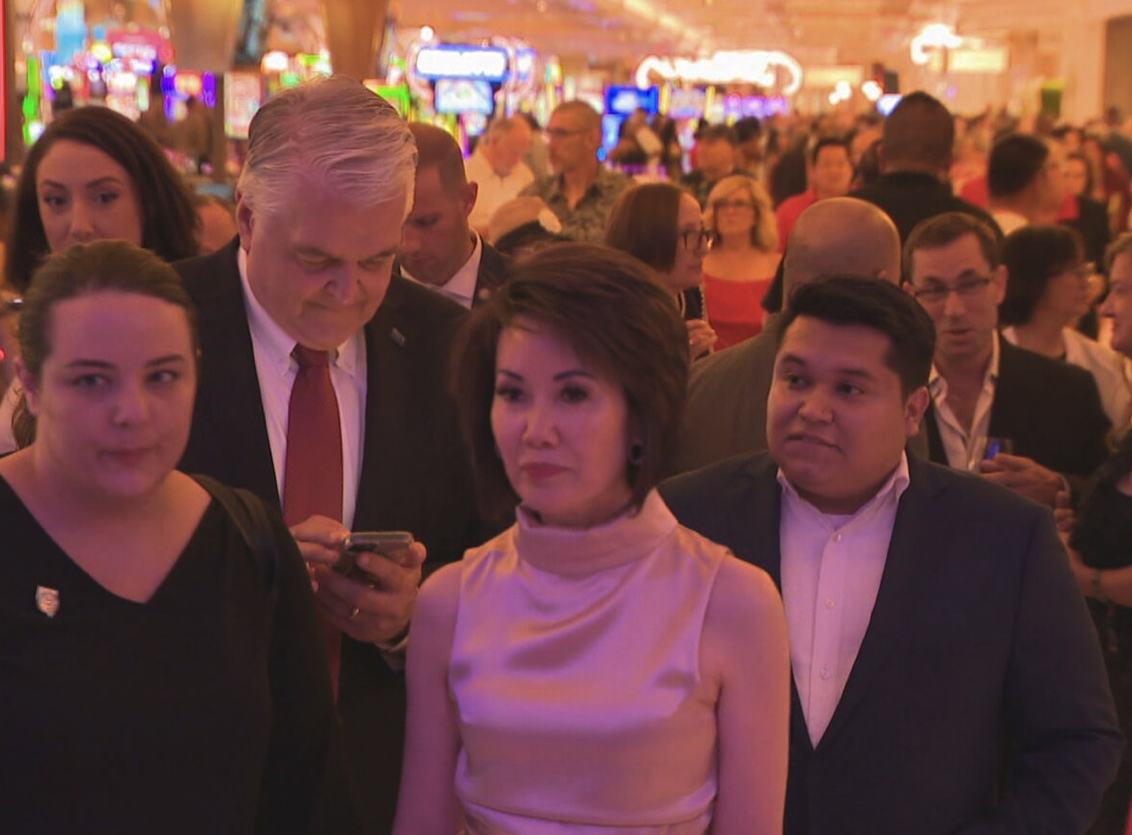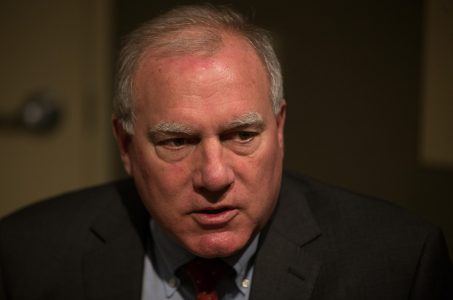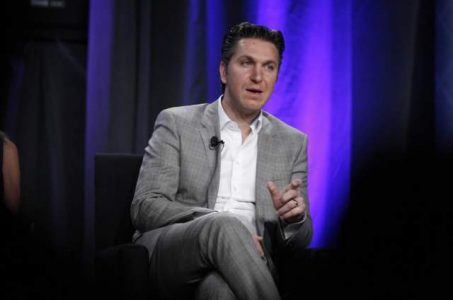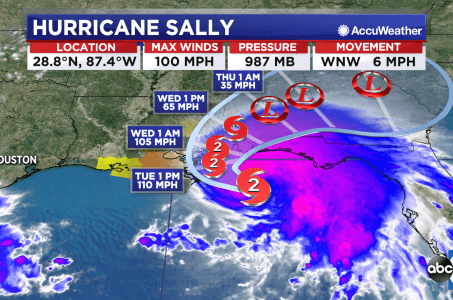As Vegas Booms, the Delta Variant Does Too, But New COVID-19 Restrictions Unlikely
Posted on: July 2, 2021, 11:55h.
Last updated on: July 3, 2021, 07:17h.
Weeks after Las Vegas began to fully reopen from the COVID-19 pandemic, the tourist destination has become a hot spot for the Delta variant. That’s a coronavirus strain scientists say is significantly more transmissible than the original virus. However, it does not appear that Nevada officials will consider reinstating restrictions on businesses, including casinos, anytime soon.

The push, for now, is to increase the number of residents vaccinated. It comes as that rate has dropped off markedly from its peak nearly three months ago. Nevada Gov. Steve Sisolak on Thursday called for federal assistance to help the state deal with that effort.
According to data from the Johns Hopkins University of Medicine Coronavirus Resource Center, 39.6 percent of Nevada residents are fully vaccinated. That ranks 34th out of the 50 states and the District of Columbia, and well below the national average of 47.5 percent.
In that same span of time, business in Las Vegas – especially along the Strip – has been booming. The Las Vegas Convention and Visitors Authority reported nearly 2.9 million people came to Sin City in May. That’s the third straight month the city has eclipsed the 2 million visitor mark.
Not coincidentally, the Nevada Gaming Control Board reported that casinos statewide won more than $1.2 billion in May, smashing a nearly 14-year-old revenue record by about $60 million. Las Vegas and other Clark County casinos accounted for more than $1 billion.
Nevada COVID-19 Cases Trending Up Again
Now, though, that combination of booming tourism and a more contagious virus is starting to show up in the state’s daily COVID-19 reports.
As of Friday, the state’s 14-day positivity rate was 6.2 percent, the highest it’s been since March 7. On Friday, the state reported 390 confirmed hospitalizations because of COVID-19, the highest total since Feb. 28.
And according to the Nevada State Public Health Laboratory, the Delta variant was the most prevalent strain in cases it sequenced through last week.
Data shows that most of the cases are occurring in the southern Nevada region, the state’s population center. That prompted Sisolak to make the call for help from the White House to get a “surge team” to help with the state’s Get-Out-the-Vaccine initiative.
“My office is working around-the-clock with state agencies and local partners to coordinate robust vaccination efforts, including, but not limited to, standing up more vaccination and testing sites, organizing Get-Out-The-Vaccine activities throughout the Valley, and developing a workplace vaccination program,” Sisolak said in a statement. “This additional support from our federal partners is necessary to assist in our outreach efforts and help meet the needs of Southern Nevada’s communities.”
What is the Delta Variant?
According to the World Health Organization, the Delta variant originated in India, with the first cases documented in October. It’s one of four “variants of concern,” according to the WHO, because of its transmissibility. Experts say the Delta variant is up to 60 percent more transmissible than the British-originated Alpha variant, which itself is considered to be up to 80 percent more transmissible than the original coronavirus.
However, rather than calling for businesses to close or reduce capacity, Nevada officials as well as their counterparts in other states are once again urging the unvaccinated to get their shots. A British public health study from a couple of weeks ago indicated two doses of the Pfizer and Moderna vaccines were 80 percent effective against the Delta variant and 88 percent effective against the Alpha variant.
Questions remain, though, whether the Delta variant, as well as emerging offshoots from it, are deadlier than other strains.
Las Vegas Casino Workers Among Most Vaccinated
It’s uncertain exactly how many Las Vegas casino workers have received at least one dose of a COVID-19 vaccine. Two months ago, state gaming officials estimated about half had at least started the vaccination process.
However, several casinos received approval to go to full capacity nearly a month before the June 1 official reopening, with some citing high vaccination rates.
On May 3, Wynn Resorts received NGCB approval to operate at full capacity after showing that 88 percent of its workforce had been vaccinated. A day later, The Cosmopolitan announced its state approval after it showed 80 percent of workers had been vaccinated.
On May 12, the board approved removing gaming floor restrictions at MGM Resorts International, Caesars Entertainment, and Station Casinos properties. None of those companies revealed the vaccination percentage of their workforces.
Culinary Workers Union Local 226, which represents 60,000 workers in Las Vegas and Reno casinos, has held several events with gaming floor workers, bartenders, and other casino staffers about the vaccines. That includes connecting workers with health care professionals to answer questions and dispel myths.
Earlier this week, Bethany Khan, the union’s director of communications and digital strategy, told Casino.org that the labor organization continues to encourage hospitality workers to get vaccinations.
Getting vaccinated is a critical step to completely reopening Las Vegas, getting workers back to work, protecting our families, and helping our union stay strong,” Khan said.
On Thursday, Geoconda Argüello-Kline, the union’s secretary-treasurer, issued a statement that indicated 95 percent of people in the Las Vegas area who have been hospitalized with COVID-19 were not vaccinated.
In addition, she added that workers could take another step to protect themselves and others by continuing to wear facial coverings.
“Some employers are still requiring workers to wear a mask, and others are not,” Argüello-Kline said. “If workers want to continue wearing a face mask while at work, that is their right, and we will enforce it.”
Related News Articles
Connecticut AG Casts Doubt on Satellite Casino Proposal
David Baazov Forms New Global Investment Company
Penn National Gaming Lures Bullish Bets, Earnings Report Looming
Most Popular
Mirage Las Vegas Demolition to Start Next Week, Atrium a Goner
Where All the Mirage Relics Will Go
Most Commented
-
Bally’s Facing Five Months of Daily Demolition for Chicago Casino
— June 18, 2024 — 12 Comments
















No comments yet